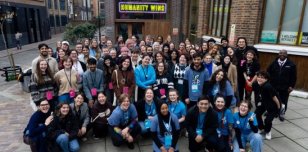Groups
Are you a student who's passionate about human rights?
There are over a hundred Amnesty student groups around the UK. And if there's not yet one at your uni, find out how you could bring human rights activism to your campus!
Enter a town, postcode or student group name














